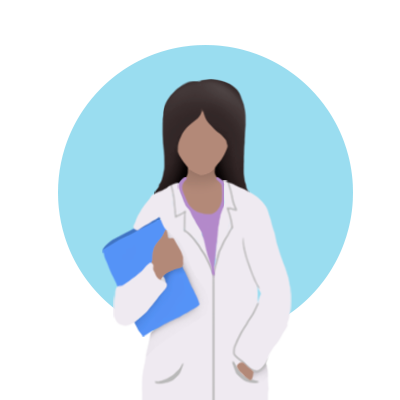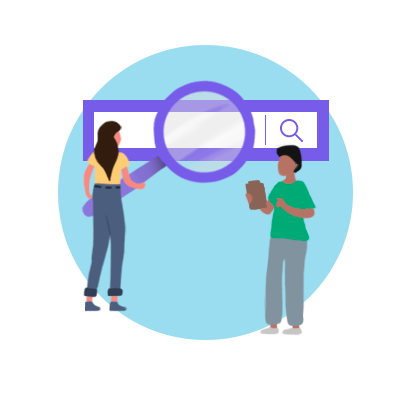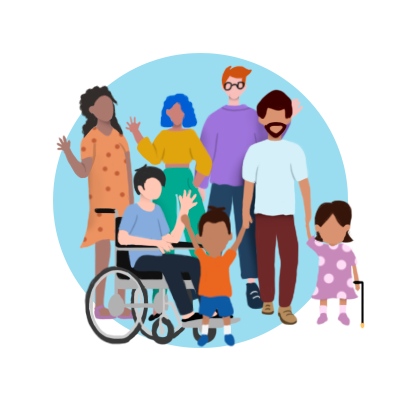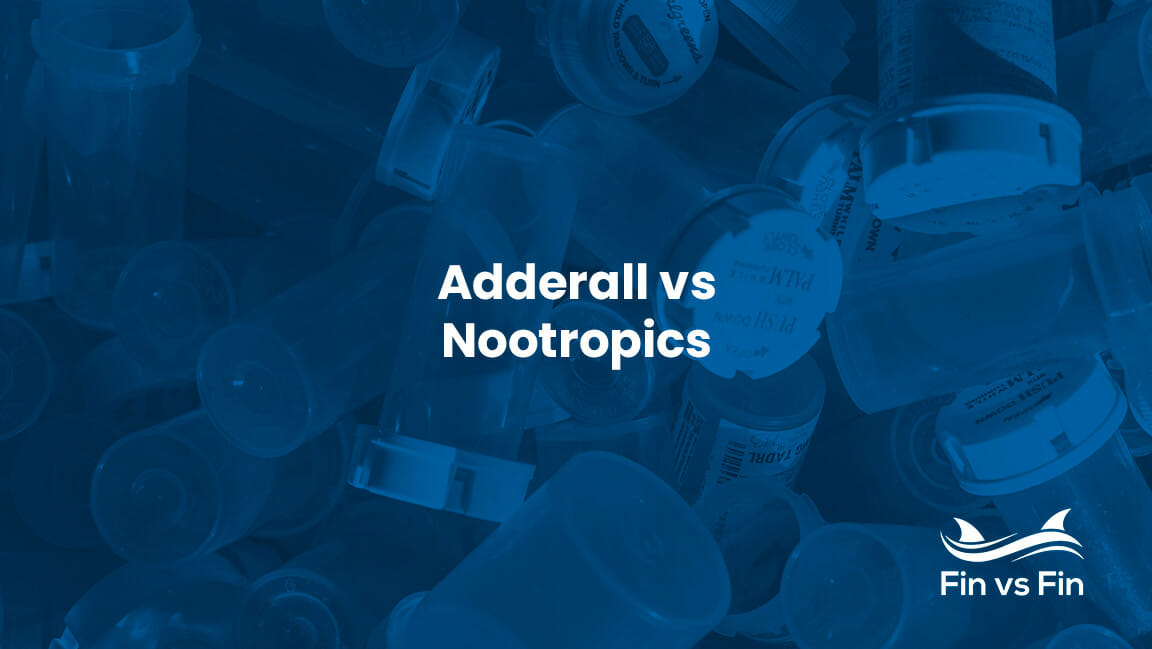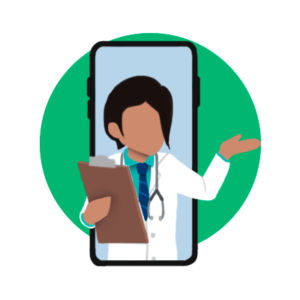In this article we’ll compare common treatments for ADHD (i.e. Adderall) to nootropics (new-troh-pics)— popular cognitive enhancement supplements that promise to improve focus, memory, and mental processing. We will discuss the top telemedicine startups that provide online treatment for Attention Deficit Hyperactivity Disorder, and help you decide what nootropics, if any, are worth trying. Naturally that also means comparing top nootropic brands like Thesis, Onnit, Recoop, and Mind Lab Pro— presenting the pros and cons of each to help you make a decision that works best for improved focus.
So, what’s healthier for ADHD, Adderall or nootropics? We’ll dive in, but first, here’s a quick primer on popular treatments and the science behind them.
What is ADHD, and how common is it?
ADHD is one of the most common neurobehavioral disorders, affecting millions of people worldwide. In the US alone, it is estimated that 6.1 million children have been diagnosed with ADHD at some point between the ages of 2 and 17, and too many more live every day without any medical help whatsoever. Luckily, ADHD is also incredibly treatable. If you are looking for expert advice, you have options and thanks to the internet, treatment is more accessible than ever. It’s now super easy to set up an online doctor’s appointment, get a prescription to quality meds, and have them delivered discreetly to your home.
While it is perfectly normal for children to be hyper and easily distracted, children that struggle with ADHD do not grow out of these behaviors as they mature, nor are their symptoms merely occasional. Those suffering need an effective treatment plan to make everyday life more manageable and productive. In order to understand what treatments are best, it’s helpful to first understand the different types of ADHD, as each requires a different course of action.
What are the different types of ADHD?
There are three distinct types of ADHD, each with its own set of symptoms and challenges.
- Predominantly Inattentive Presentation: individuals struggle with paying attention, completing tasks, and following instructions.
- Predominantly Hyperactive-Impulsive Presentation: this type of ADHD is marked by impulsive and very hyper behavior. They have trouble in social situations, often speaking out of turn or too much.
- Combined Presentation: as the name suggests, individuals with this type of ADHD deal with a combination of symptoms from the other types listed above
Other common symptoms of ADHD include, but are not limited to:
- Restlessness: Fidgeting and difficulty sitting still
- Impatience: Have trouble waiting for their turn
- Verbosity: Talking nonstop/out of turn
- Obliviousness: Overlook or miss details
- Lack of Focus: Easily distracted and forgetful
- Falling Behind: Not following instructions and failing to complete assignments
As of now there is no cure for ADHD and no evidence linking the disorder to any external factors. There are, however, several proven ways to treat and manage the disorder to reduce the effects it has on daily life, so let’s cover the top ADHD treatments (and how to get them online) — just one final note…
Why is it important to seek treatment for ADHD?
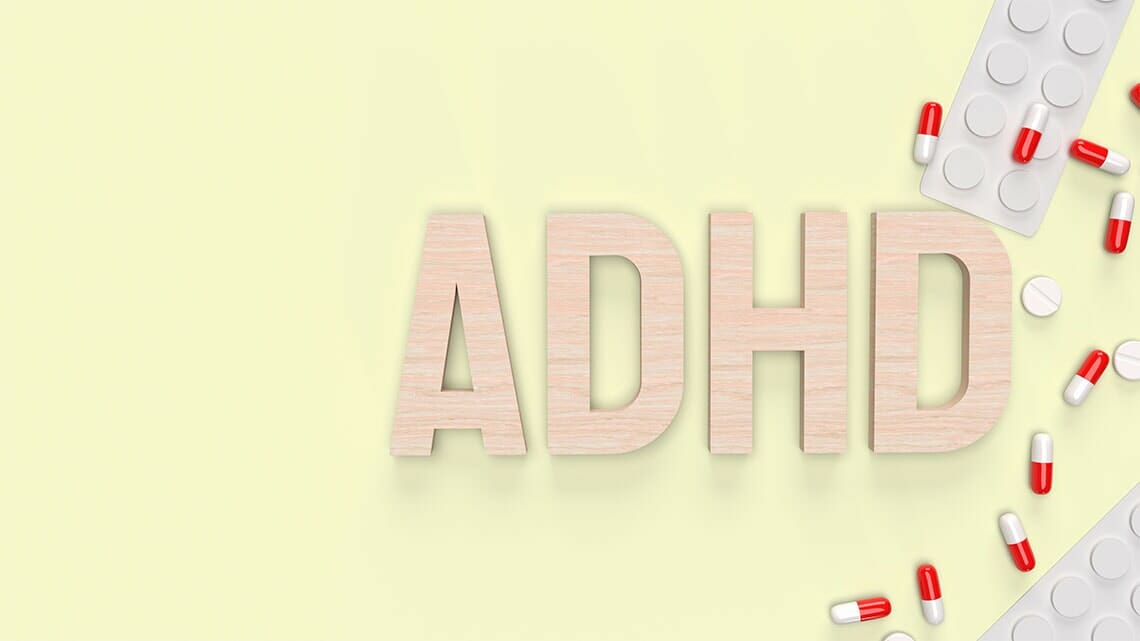
ADHD can affect every aspect of your life— from your performance at work to your ability to have and maintain healthy relationships with your loved ones. However, that’s not all. Many who are diagnosed are also combating other mental disorders at the same time, increasing the need for high quality treatment. Often people elect to treat ADHD first to reduce stress and enhance their ability to manage symptoms from another underlying disorder. Thus treatment is not always simple, and seeking medical advice from an expert is highly advised.
Most people with ADHD are diagnosed as children, but unfortunately that is not the case for everyone. It is estimated that only about 10% of all adults with ADHD are diagnosed and get access to the right treatment. As medicine advances and early diagnosis are becoming more common there has been a significant increase in the number of adults with ADHD. Regardless of what age you’re diagnosed, remember that it’s nothing to be ashamed of! And fortunately for you, online ADHD treatments ranging from prescription medication to unregulated cognitive enhancers (i.e. nootropics) have made it easier for so many to cope and thrive.
What are the best treatments for ADHD?
Most doctors recommend treating ADHD with medication and behavior therapy. Typically prescription meds are reserved for patients over six years old, and studies show that the combination of both treatments is needed for the best results.
What are the most popular medications for ADHD?
Broadly speaking, there are two kinds of medication for ADHD: stimulants and nonstimulants. Stimulants are the most widely used — Adderall, Ritalin, and Dexedrine are some of the most common. How do they work? Stimulants increase dopamine and norepinephrine— brain chemicals that play essential roles in thinking and attention. According to the National Library of Medicine, between 70% and 80% of children and adults experience less symptoms of ADHD when taking these medications.
Adderall: How does it work for ADHD?
Adderall is a stimulant that combines amphetamine and dextroamphetamine— central nervous stimulants that enhance attention and lessen impulsivity by boosting dopamine and norepinephrine levels in the brain. Adderall is used by millions to improve focus and attention span by keeping you calm and relaxed. That said, finding the right dose and brand can be difficult, often patients need to switch medications after building up tolerance, and like all drugs, there often are many unintended side effects.
What are the most common side effects of adderall?
- Anxiety / Nervousness
- Restlessness
- Headaches
- Loss of appetite
- Erectile dysfunction
- Addiction
- Depression
The implications of taking Adderall and then stopping can be pretty serious as well. The feeling it provides is indeed addictive as it increases dopamine (our feel-good hormone) and puts users in a happy, relaxed state. As a result, when users stop taking the stimulant they may feel depressed and experience symptoms of withdrawal— something to keep in mind for anyone seeking long-term treatment.
That said, millions of people take Adderall every day and benefit from the effects with minimal complications. If you do your research, seek professional medical advice, and take your meds responsibly as your doctor prescribes, you shouldn’t run into many issues. Adderall is highly regulated, widely popular, and clinically proven to help with ADHD. So if you’re interested in trying it or improving your current dosage, here’s how you can get it online.
How do you get Adderall online?
All patients must get a prescription from a licensed doctor, but there are convenient ways to get prescribed Adderall online without having to leave your house.
Klarity and Done are two of the most popular direct-to-consumer telemedicine startups offering ADHD meds online. They both promise a personalized care plan by first setting you up with a virtual doctor visit and then tailoring the right mix of treatments to your individual needs and schedule. These are your two best options if you are looking to start an online ADHD treatment plan.

While we appreciate how both of these companies have increased access to quality treatment, allowing individuals to maintain the daily routine that keeps them happy and healthy, we highly recommend Klarity over Done. Their customer service is unparalleled, and unfortunately we’ve seen a ton of negative reviews of Done that suggest they are less than responsive when they need to be. When dealing with a patient’s mental health, that’s simply not acceptable. We recently published an in-depth comparison of Klarity vs Done.
What are the best alternatives to adderall for ADHD?
Beyond prescription stimulants, there are a number of over the counter dietary supplements available that promise to help with focus for ADHD. For anyone opting for all natural remedies, Nootropics are a popular emerging class of cognitive performance enhancers that many have started taking to combat the side effects of Adderall (along with other stimulant medications) and ADHD. If you’re skeptical of pharmaceuticals, nootropics are worth looking into. But how exactly do they work? Let’s review the science.
How do nootropics work?

Nootropics are natural compounds that promise to enhance cognition and protect the brain without negative side effects. Companies have started creating supplements that combine several different nootropics (this is called ‘stacking’) in an attempt to compound their individual effects.
While there are millions of happy users who claim higher focus from daily ingestion, currently, little to no scientific evidence exists that suggests the nootropic ‘stacks’ are effective. These supplements are not technically created to treat, prevent, diagnose, or cure diseases, and because of this, they are not regulated by the FDA. Thus, creators of nootropics do not adhere to the same safety and efficacy standards as prescription drugs upon entering the market, which makes nootropics far more accessible than adderall, but also far less proven. If anything, nootropics are supported by a growing body of anecdotal evidence, but they are far from proven. Supplement manufacturers are independently responsible for safety and proper labeling and relatively unmonitored by the FDA. Placebo or real, millions of people claim positive benefits from nootropics, so they are worth a shot, even if only to rule out.

Adderall vs Nootropics |
Adderall |
Nootropics |
|
Prescription required? |
✅ |
❌ |
|
Potential side effects |
Nervousness Restlessness Headaches Loss of appetite Erectile dysfunction |
Depending on the blend or brand:
Insomnia Digestive discomfort Headaches Brain fog |
|
FDA approved |
✅ |
❌ |
|
Non-addictive |
❌ |
✅ |
|
All natural? |
❌ |
✅ |
|
How long do they last? |
Immediate release: 4-6 hours, extended release: up to 12 hours |
Up to 12 hours |
|
How to take them |
1-3 times a day |
As needed for optimal cognitive functions, 1-3 times a day |
What are the most common nootropics?
Before diving into the world of nootropics, we’re going to give you a brief analysis of some of the most common and well researched nootropics on the market so you know what to look for.
1. Bacopa Monnieri
Bacopa Monnieri is an ancient herb used to enhance memory and focus. While the drug has been used for centuries, studies have only recently proved the safety and efficacy of Bacopa Monnieri. The National Institute of Health (NIH) conducted a study on medical students and the impact Bacopa Monnieri had on learning and focus. Results indicated significant statistical improvement on tests relating to the cognitive function when using Bacopa Monnieri. The NIH recommends taking a 300mg dose for an extended period of time for the best results.
2. L-theanine
L-theanine is a natural non-essential amino acid found in tea and mushrooms. It can also be taken in the form of a supplement to reduce stress and anxiety without causing fatigue and brain fog. For maximum benefits the NIH recommends taking between 200mg-400mg of L-theanine over an eight week period.
3. Rhodiola Rosea
Rhodiola Rosea is an herb that helps the body handle stress more effectively. Studies have shown supplements of Rhodiola Rosea can help anxious individuals manage the impacts of their stress and improve their moods. Unfortunately, more research is required to figure out what dosage is most effective to maximize cognitive benefits.
4. Panax Ginseng
Panax Ginseng is a root that has recently been found to improve various aspects of cognitive performance. The exact science behind why the root is effective is unknown but studies have concluded that it does work. Panax Ginseng has proved to be effective in reducing brain fatigue and improving performance on tasks like mental math. Research also indicates that some adapt to the nootropic after taking it for an extended period of time. In conclusion, the root has been shown to reduce brain fatigue and improve aspects of cognitive function, but more research is needed to truly understand Panax’ effectiveness long-term.
5. Lion’s Mane mushroom
Lion’s mane mushroom has frequently been used in the world of alternative medicine. The mushroom has two compounds (hericenones and erinacines) that have proved to stimulate brain cell growth. One research study (available human studies are limited) showed that the regular ingestion of lion’s mane could potentially improve cognitive function in older individuals, however, the effects only lasted while they were taking the supplement.
Although the science behind all of these supplements is spotty, some nootropics do have significant evidence supporting safety and legit cognitive benefits. Additionally, nootropics have many prominent supporters and die-hard advocates that do claim to experience life-changing effects. Below is a chart comparing a few of the top nootropics providers — Recoop, Onnit, and Mind Lab Pro — to help you better understand what they offer. At the end of the day, whatever makes you focus and feel better is the right solution, regardless of if scientists have figured out why.
What are the best nootropic brands?
1. Recoop
Recoop also aims to deliver a high quality supplement made from carefully-sourced, top-shelf ingredients. Their wellness set supports brain and body functions most commonly disrupted by stimulants. For example, Adderall is known to cause loss of appetite, nervousness, and restlessness; Recoop’s wellness set is supposed to reduce these side effects, and thus is a better option for folks who are committed to taking Adderall, but want to diminish its downsides.
Source: Recoop
Recoop’s wellness set includes two bottles: Balance and Recovery. Balance is meant to increase cognitive function while reducing the unfortunate side effects of ADHD medication. Recovery is meant to help patients relax and fall asleep easily. The set’s starting price is $119 for a one time purchase. If you choose to subscribe, the monthly rate is $79/set.
Does Recoop have any side effects?
However, one individual mentioned experiencing brain fog, dizziness, nausea, and inhibited motivation levels. Again, it’s always smart to consult a medical professional before trying any new supplements, but in general Recoop’s nootropics are safe and unlikely to cause side effects for the vast majority of the population.
Balance and Recovery are each made up of six natural ingredients. The efficacy of their ingredients is up for debate — for example, Curcumin has been shown to modulate numerous important molecular targets as an antioxidant, but it’s poorly absorbed when taken orally. Recoop points to academic studies (3 per ingredient) on their ingredients page as evidence of cognitive benefits.
Having reviewed a few of the studies they link to, I’m not 100% convinced there’s proof that any of the ingredients in the wellness set are universally effective in reducing the side effects of stimulants like Adderall, but Recoop boasts many happy customers online, and is worth trying for anyone who takes Adderall and needs a remedy for the jittery alertness caused by stimulant pharmaceuticals. In other words, like most nootropics, Recoops’ wellness set is far from proven, but it’s 100% worth a shot to see if can help you — as it has for so many others — to minimize or eliminate unwanted side effects of Adderall.
2. Onnit (Alpha BRAIN) — What nootropics does Onnit offer?
Onnit is a fitness brand whose mission is to help their supporters and customers reach peak human performance by improving all aspects of their health and wellness. Their nootropic supplement, Alpha Brain, aims to support memory, aid mental processing, and keep you in the zone. Compared to Recoop, Onnit seems to promote themselves as a more extraordinary supplement, designed to help you push your limits and maximize your potential. Anyone remember the movie Limitless? You won’t become like Bradley Cooper with a photographic memory and infinite processing speed, but their offering is compelling for anyone looking for an extra edge.
Alpha Brain is available for purchase starting at $34.95, making it significantly less expensive than the other brands. You can save 15% if you subscribe monthly, and other discounts apply for buying in bulk.
Source: Onnit
Does Onnit’s Alpha Brain have any side effects?
Some users have reported fairly serious side effects including nausea, headaches, jaw pain, body odor, and difficulty sleeping due to vivid dreams and nightmares (yikes!). While there is no evidence supporting the efficacy and safety of these supplements, a study conducted by Wiley Online Library determined there’s close to a zero percent chance of developing a serious medical condition if you take this supplement. So beyond the possibility of experiencing uncomfortable side effects, the supplement has proven to be quite safe, but may be worth a quick conversation with a medical professional to make sure.
3. Mind Lab Pro — What is a universal nootropic?
Mind Lab Pro is the world’s first universal nootropic designed to boost all types of brain functions in all types of people. Unlike the other three supplements, Mind Lab Pro combines a whopping 11 different nootropic ingredients to enhance cognition.
Pricing starts at $69 for a one month supply, and similar to the other brands, as you purchase more the price goes down. A three month supply, for instance, costs as little as $51.75 per box.
Source: Mind Lab Pro
Does Mind Lab Pro have any side effects?
Mind Lab Pro is generally very safe, but with so many different ingredients, the most common side effects are typically gastrointestinal. If you start experiencing such stomach issues, we recommend you stop taking the supplement immediately. Pinpointing the exact cause of any discomfort may be more difficult given the wider variety of ingredients.
Overall, Mind Lab Pro has tons of great reviews, reporting virtually zero serious side effects or safety concerns. The supplement contains some of the most well researched ingredients that are properly dosed for the best results. Additionally, Mind Lab Pro is the first supplement of this type to have a clean label— meaning the product contains no artificial colors, preservatives, GMO’s, gluten, additives, or caffeine. What really separates Mind Lab Pro from other supplements aiming to provide a large variety of cognitive benefits, however, is their insistence on packing 11 (!) of the most effective nootropic ingredients into one pill— They could be turning a corner in the world of nootropics and other holistic medicines and you could be one of the first to try it.
4. Thesis Nootropics — Do personalized nootropics work?
Thesis sets themselves apart by not only offering high-quality blends with high transparency around their ingredients, but personalized blends created with the patient in mind. Based on your answers to some basic info, Thesis will recommend 1+ nootropic blend that will benefit you the most. Most Thesis customers eventually choose to continue taking two or more blends in combination for the full benefits according to what they are looking for.
This customization, in combination with access to a Thesis coach, offers results and benefits found nowhere else. They currently offer six formulations:
- Clarity
- Confidence
- Creativity
- Energy
- Logic
- Motivation
To learn more about our personal (!!) experience with Thesis’ Nootropics blends, check out our review of Thesis Nootropics.
Do Thesis Nootropics have any side effects?
The idea with personalized blends is to find what works best for you. That being said, your body could tell you that a certain compound doesn’t agree with it with a headache, stomach ache, or other sub-optimal effect. Thesis said it right: “finding what doesn’t work can be just as productive as finding what does“. The pro? They want to find what does work, and they have the blends to do so, whether the first try works or not.
Nootropic comparison: Onnit vs Recoop vs Mind Lab Pro | ||||
|---|---|---|---|---|
| Price | Starting at $34.95/bottle | Starting at $69/box | $119/set (balance and recovery) | One-time purchase is $108 with code FINVSFIN Monthly subscription is $71 with code FINVSFIN |
| Shipping costs | Free | $9.95 standard shipping | Free | Free |
| # of Ingredients | 11 | 11 | 6 | 27 different ingredient combinations to try, depending on blend |
| Side effects | Jaw Pain Headaches Body odor Difficulty sleeping Nightmares | Stomach pain | Virtually none | stomach pain or headache, in which case, Thesis recommends trying a different blend |
| Refund policy | 30-90 days | 60 days | 30 days | 30 days |
| Website |
The Verdict: Are Nootropics a legit adderall alternative for ADHD?
Given that these supplements are not meant to prevent, treat, or cure ADHD, we recommend consulting a medical professional before trying them in place of, or alongside, traditional ADHD medications like Adderall. Adderall is more of a proven treatment, with millions more human data points to support claims of efficacy and safety. That said, check out this list of the best nootropics for ADHD.
If you are looking for ADHD treatment for the first time…
…and seeking care for the first time, we highly recommend that you try Klarity. They are the leader in virtual ADHD consultation and treatment. If you are eligible, they will connect you with a psychiatrist to get you personalized care virtually, all from the comfort of your home. They require no monthly membership, offer superior flexibility, and don’t charge you for appointments you don’t attend. Klarity is building a better future for mental health care, and we admire their mission to remove the stigma of getting treatment for mental health conditions, starting with ADHD.
That said, Klarity isn’t a viable option for all. Folks with extreme cases of ADHD that require extensive in-person care won’t find the service very valuable. Likewise stimulants like Adderall in general aren’t for everyone either. Many try them and soon realize the side effects can be more unbearable than their underlying symptoms. Thus in our view, nootropics are best for those who have already tried prescription meds and are looking for alternatives. If you’re opposed to pharmaceuticals and seek more natural treatments, or just want to lessen the icky side effects of adderall, nootropics could be a solid alternative indeed.
If you’re looking to improve your brain functions without stimulants…
Thesis Nootropics are the most customizable alternative to stimulants, providing similar benefits, minus any jitters, crashes, and side effects. They provide the long term change that someone with ADHD is seeking to balance the brain and neurotransmitters, without the dependance and crashes that can come with stimulants. If you’re struggling with energy, focus, memory, attention span, or motivation, Thesis has the blends to address that, and more, personalized for you.
Not only do they offer transparency surrounding their ingredients, the personalization does not stop at the formulations. They offer the support of wellness coaches and nootropic experts to support you in your journey to find the right blend to improve your baseline performance, and inherently, your brain.
If you’ve tried Adderall and want an alternative…
For those whose prescription is letting them down — Mind Lab Pro is the safest and most effective option in our opinion. Using 11 of the most well researched ingredients in terms of safety and efficacy this supplement is truly one of a kind. The only downside is the price, starting at $69 Mind Lab Pro is one of the most expensive nootropic supplements on the market, but rightfully so. Finally, Mind Lab Pro has hundreds of five star reviews (significantly more than any of the other products we have discussed) verifying the product’s effectiveness and lack of side effects, making the high prices well worth it.
If you’re looking for a supplement to take for adderall side effects…
…Recoop is your answer! Their nootropic formula is specifically designed to reduce the side effects of stimulants, including limiting your tolerance and jitters. Their two main products — balance and recovery — are aptly named as they help to balance out the effects of Adderall, as well as help limit undesired after effects. If you’re currently taking Adderall for ADHD, but don’t 100% like the way it makes you feel, try Recoop today and see if it can help smooth out your experience.
Once again, while some of the individual nootropics have gone through clinical trials none of these supplements have gone through the trials necessary to ensure safety and efficacy. Every person is different and the way we respond to each nootropic is different as well. For the safest and most effective results, consult a medical professional before deciding which supplement is right for you.
Discover more innovative mental health products
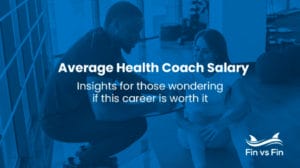
Average Health Coach Salary: Insights for Those Wondering If This Career Is Worth It
With an average yearly salary of $55,672 in the U.S., health coaching is a worthwhile career for those interested in the health and wellness space

What to Expect From a Life Coach and How to Get the Most Out of Your Coaching Experience
Life coaching has emerged as a strategy for overcoming personal and professional challenges. Distinct from therapists and counselors, life coaches focus on helping their clients

Topics to Be Coached On: Discovering What People Want From Coaching
People seek out the services of coaches for a multitude of reasons. Individuals may seek out coaches to assist them in working towards specific or
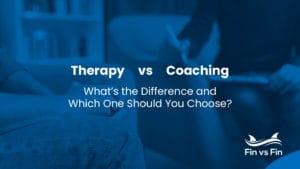
Coach vs. Therapist: What’s the Difference, and Which Is Right for You?
Key Takeaways: Therapists have advanced degrees and formal licensing; coaches may have varied backgrounds and certifications. Therapy focuses on mental health, while coaching focuses on

PlushCare Anxiety Review: Is It Best for Online Therapy & Anxiety Meds?
Telehealth platforms, like PlushCare, allow you to prioritize your mental health in a more convenient and affordable way. With PlushCare’s online platform, you won’t
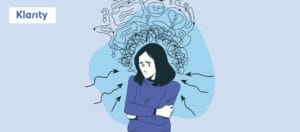
Klarity Anxiety Review – Pros, Cons, Alternatives, & More
Affecting over 40 million American adults each year, anxiety is one of the most common mental health conditions. Regardless of the type of anxiety condition,

